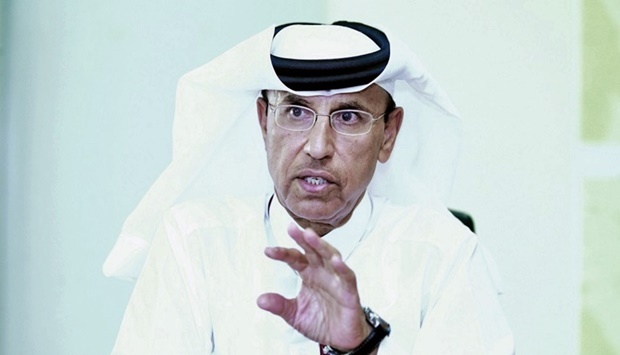* QCAA air navigation director confirms Qatar's readiness for 2022 World Cup
More than 1,600 air movements are expected per day during the FIFA World Cup Qatar 2022, an official has said.
Ahmed al-Eshaq, director of the Air Navigation Department at Qatar Civil Aviation Authority (QCAA), has confirmed the readiness of Qatari air navigation for the World Cup, noting that all procedures related to the Qatari airspace and the flow of aircraft movement and air control are in line with the requirements of operational intensity during Qatar 2022.
It will be done a highly professional manner, he added.
In an interview with 'Al Sharq' newspaper, al-Eshaq expressed his expectations that air traffic during the FIFA World Cup Qatar 2022 will involve more than 1,600 air movements per day. He explained that after a gradual recovery from the repercussions of Covid-19, air traffic rates increased in Qatar, ranging between 750 and 800 air movements per day, which makes Qatar the second most crowded country in the Middle East in terms of air traffic.
He stressed that all workers in the field of air traffic control have received intensive training according to the highest professional and technical standards to manage the Qatari airspace in an efficient and professional manner. He reiterated the importance of the role of the Qatar Air Traffic Control Centre in enhancing training operations for air traffic controllers to improve their capabilities and professional competence in order to keep pace with the expected heavy air movement during the FIFA World Cup Qatar 2022 and after the World Cup as well, in addition to its role in modernising the local aviation industry system through the use of the latest technical and technological developments in the field of air navigation.
Al-Eshaq said that in the context of preparations for the FIFA World Cup Qatar 2022, the number of aircraft parking lots have been increased to improve capacity at the airport, which is in line with the programme and plan set by the management of Hamad International Airport (HIA), which is expected to finish at the end of August.
He pointed to the installation of latest devices in the Middle East, the 'virtual tower', which will contribute in the future to dispensing with traditional watchtowers.
He added that this device can be installed anywhere, and through it, aircraft can be directed through screens and the device. There are no such devices in the Middle East except in Qatar, he said, adding that a number of modern radars have also been installed at Doha Airport and Hamad International Airport.
The completion of the installation of two additional radars at HIA will be done soon, contributing to the enhancement and support of aircraft movement on runways during takeoff and landing.
He pointed out that safety rates in the Qatari air traffic movement reach 100% because of the advanced technological devices and the efficiency and professionalism of air traffic controllers, who possess the ability, operational efficiency, qualitative qualification and raining and professionalism needed. He stated that the air navigation was provided with a large number of modern devices as well, and these were installed to keep pace with the expected increase for the FIFA World Cup Qatar 2022.
Al-Eshaq said any update or change in the air navigation system is done in consultation with Qatar Airways, which plays its role in setting these routes and changes in its simulator to test it and notify air navigation if the procedures are appropriate or need to be modified to ensure the smooth movement of aircraft, stressing the success of this experience due to the plans, operational programmes and advanced and modern devices that have been activated currently.
Further he explained that the difference between older air navigation and modern air navigation is vast, noting that it lies in the advanced technology of the current air navigation devices compared to their counterparts over the past 10 years.
Al-Eshaq concluded his statements by confirming that the current equipment guarantees and enhances the safety component of aircraft flying in Qatari airspace through the ease of air and ground movement.

